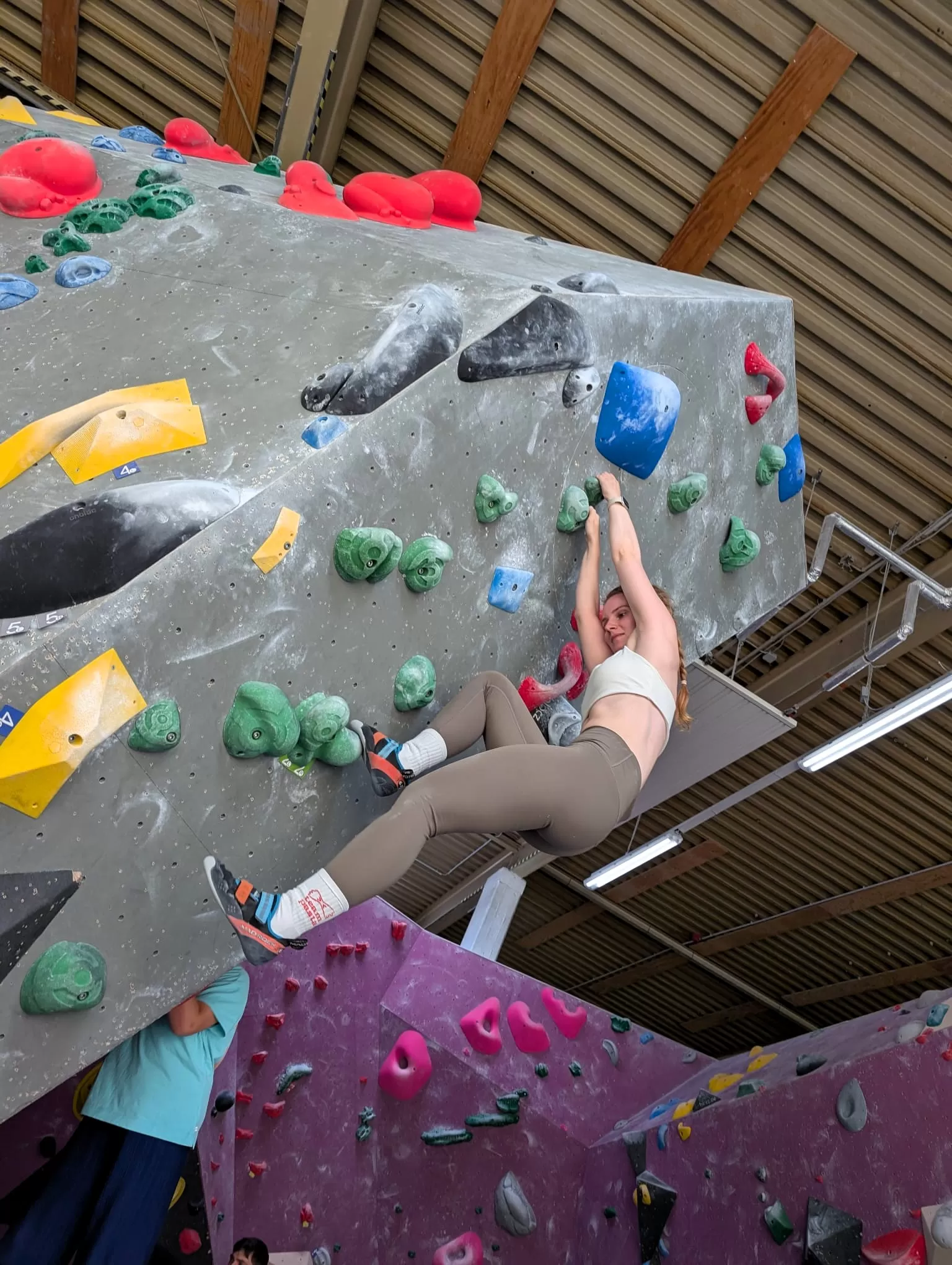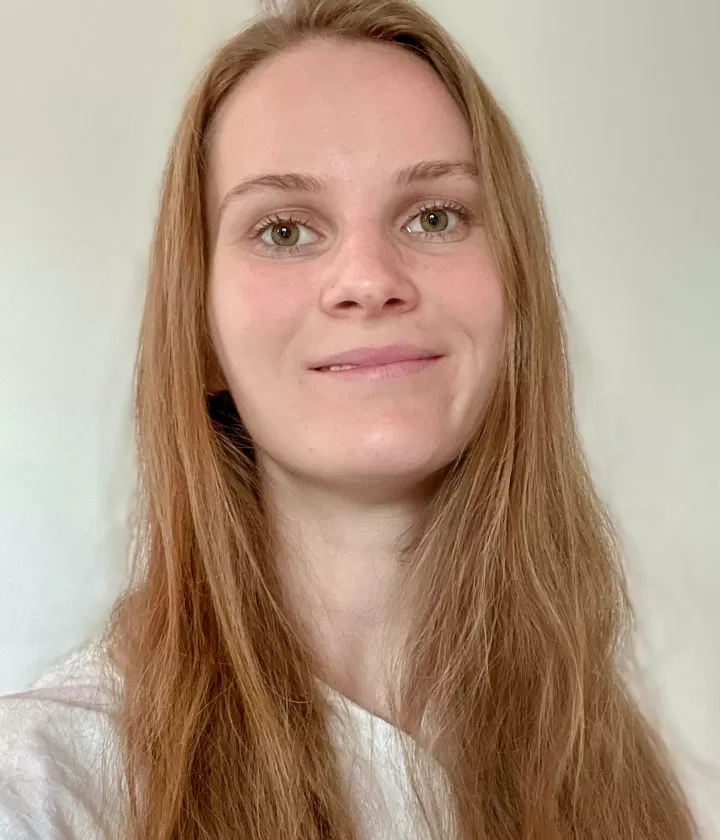
Marie Diefenbach-Wilke
Marie Diefenbach was awarded a Student Grant by Wübben Stiftung Wissenschaft in 2024/25 and is now pursuing her PhD on the developmental biology of the immune system. Setbacks have not weakened her passion for research. Here, she shares her goals and her current passion: macrophages.
Macrophages always tend to get overlooked a little. These are the cells in our innate immune system that ingest pathogens. They intervene right at the start of illnesses and play an important role in the development of the embryo. Not much has been known about macrophages until now – which is exactly why I find them so exciting.
For my master’s dissertation, I investigated which macrophages are active in the body when someone is infected with malaria, a topic that hadn’t been researched at all until then. Another thing that makes macrophages exciting is that they can turn against us – for example by promoting a brain tumor instead of fighting it. I examined this during my internship at the Netherlands Cancer Institute. Most of my experiments went wrong. In the end, though, I did succeed in stopping the macrophages from ingesting particular fats that could otherwise fight the tumor.
Setbacks encourage me because they can open the way to unexpected discoveries. I had to be very disciplined as a kid when I was figure skating. Often when you’re skating, the only thing that helps is to get back up again and carry on. You always have to try to understand why something has gone wrong and then give it another go.
I’m mainly concerned with fundamental research. When people ask me why I’m not interested in directly curing diseases like malaria, I tell them we don’t know enough about the immune response for that yet. I would love to develop cures, but first of all you have to understand a disease’s effects. This can then sometimes help with developing a cure – for instance by laying the basis for new immunotherapies.
It’s important to understand the role macrophages play because they are crucial, regulatory components of the immune system. With the latest sequencing methods and high-throughput techniques, you can look at the system as a whole and observe what changes when you adjust a particular part of the mechanism. It’s essential to work with bioinformaticians and other specialists if you want to do this.
Of course, new questions keep coming up all the time. Unknown pathogens, say, or the challenges to the immune system caused by high-salt diets and microplastics. Macrophages are able to ingest microplastics, but not break them down; these substances stay in the human body. Microplastics may also satiate macrophages, which then can’t defend so well against other pathogens.
My aim is to understand the foundations of the immune system so well that we can use therapies in more targeted ways, meaning they only attack the cells that really pose a danger.
For my PhD thesis, I will be investigating whether a very high-salt diet influences macrophage activity in the gut and liver, and whether there are any changes to the microbiome or intestinal permeability. At the same time, I also want to factor in sex differences. Up until now, questions like this have often only been researched on men because it’s simply easier to do, given they don’t experience hormonal fluctuations due to the menstrual cycle for example.
There’s so much that still hasn’t been researched, you can’t even imagine all the things there are left to discover. My aim is to understand the foundations of the immune system so well that we can use therapies in more targeted ways, meaning they only attack the cells that really pose a danger. In the future, I hope we’ll be in a position to diagnose immune diseases within a few days, identify the immune cells that are involved, and then quickly offer personalized immunotherapy.

Marie Diefenbach-Wilke is studying for a PhD under Elvira Mass in the Department of Developmental Biology of the Immune System at the University of Bonn Life & Medical Sciences Institute (LIMES). She studied biology at Kiel University and biology and immunobiology at the University of Bonn. She was an intern at the Netherlands Cancer Institute, working on tumor biology and immunology, and is one of the co-leads for the Communications Working Group of the Young European Federation of Immunological Sciences (yEFIS). Marie Diefenbach-Wilke was awarded a Student Grant by Wübben Stiftung Wissenschaft in 2024/25.